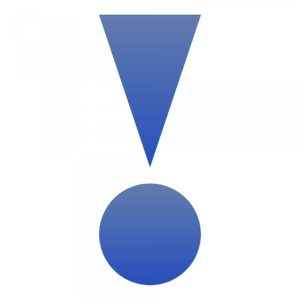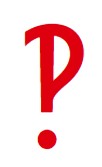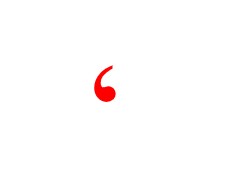 Elmore Leonard once said of exclamation points, “You are allowed no more than three per 100,000 words.”
Elmore Leonard once said of exclamation points, “You are allowed no more than three per 100,000 words.”
I shrugged that one off when I read it, because that was Elmore Leonard‘s rules for writing. But it was always in the back of my mind. If I saw a “!” in my own writing, it’s life expectancy would be very short. (“Very” is another writing tic I’ve talked about before. Like everything else, it’s here because it works.) If I see it in editing, with one exception, I usually will flag it and tell the writer to take it down a notch.
But while Elmore disdained the !, one must remember it was how he wrote. He also had a Stephen King-like disdain for adverbs. Unlike Steve, Elmore actually stuck to it. I’m getting King’s Never Flinch when it comes out, so I may do an adverb count. But while I don’t share Elmore’s contempt for the !, I do get it.
For starters, with one very notable exception (Hi, Nathan!), I will mercilessly zap all instances of “!!” or “!?” Also, unless it’s for effect, it should be clear a character is shouting without putting an exclamation point at the end of every line of dialog the character speaks. Remember, someone has to read this, and as always, if it annoys the reader, your book is a DNF, a cute little abbreviation for “Did not finish.” (StoryGraph, an alternative for Goodreads, even has a status for this in addition to Want to Read, Reading, and Read. Bezos, you own Goodreads. Take note.)
But what was that other thing I just did? “!?” That, my friends, is the much maligned interrobang, which has long since been replaced by the acronym “WTF,” often spelled out or replaced with a similar phrase. There’s even a symbol for it with two html codes to render it. ‽ That might be hard to see with this font, so here’s an image from compart.com explaining the technical details:

If “WTF” were punctuation, this is what it would look like. But the interrobang never really caught on, mainly because it’s a comic book construction. Now, comics and graphic novels have their own rules, just like 73X7ing, lol. In prose, this really doesn’t quite cut it. But whoever came up with the interrobang deserves credit for trying. Still, readers find it distracting. The question mark (?) isn’t as scrutinized because we only use them to ask a question. In fact, they’re missed more than overused because some questions are not asked with the pitch of the voice going up. If, like me and a lot of other writers, you “hear” what you write, then a question (almost always in dialog) asked with a voice drop tells another part of your brain, “Hey, this is a period at the end.” I put in more question marks than I take out.
The !, or bang as it’s been called since the early days of computer programming, has a bad reputation because it gets abused. Like semicolons and em dashes*, they can get distracting. The former is because they’re so seldom used and often are more associated with computer code. Java and C# (and SQL, though I refuse to use them in SQL) use semicolons to end commands. Em dashes are a Gen X and Millennial tick, which has resulted in ChatGPT getting a migraine when users tell it to STOP USING SO MANY EM DASHES! I wont’ get into the ethics of how ChatGPT learns, but suffice it to say, we GenXrs and Millennials are baking our bad habits into cyberspace.
Normally, I have rules applied mainly to crutch words: One instance per page unless unavoidable. (“Just” is a nuisance word and hard to weed out as I end up putting back a third of what I cut.) For the exclamation point, I’ll restrict that even more. First, memorize Leonard’s rule: one bang per 100,000 words. And when you or your publisher send me your manuscript, understand, while I may be more lenient than Elmore Leonard, I still restrict it to one per chapter. Maybe one every three, since short chapters are the norm now.
*You can have my em dash when you pry it from my cold, dead–and lifeless–hand.
 Thanks to clickbait and social media, use of the apostrophe (or “sky comma”) is a lost art. The most common (and often ridiculed) error is, of course, your/you’re. When you’re typing at a million miles an hour and want the words down, it’s easy to “hear” a word and pick the wrong spelling. For all the jokes about your/you’re, it’s something a ninth grader doing a proofread of your manuscript can spot. Assuming that ninth grader doesn’t believe texting should be the basis of grammar. Spoiler alert: It shouldn’t. k thx bye!
Thanks to clickbait and social media, use of the apostrophe (or “sky comma”) is a lost art. The most common (and often ridiculed) error is, of course, your/you’re. When you’re typing at a million miles an hour and want the words down, it’s easy to “hear” a word and pick the wrong spelling. For all the jokes about your/you’re, it’s something a ninth grader doing a proofread of your manuscript can spot. Assuming that ninth grader doesn’t believe texting should be the basis of grammar. Spoiler alert: It shouldn’t. k thx bye!